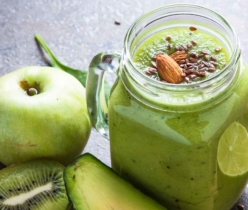Diet coke provides virtually zero nutrition for the body. But it’s high in carbonic and phosphoric acid which is terrible for the teeth and bones. Diet coke is good for sugar addicts and those who already consuming lots of full sugar coke who need weaning off the sugar. Beyond that, it has no place in our diets. Why anyone would choose to drink it over water has always been beyond me.
A diet rich in vegetables, fruits, wholegrain, nuts, seeds and plant-based proteins has consistently shown to be beneficial for health. Then just create a calorie deficit through exercise and portion control and you have fatless.
Diet coke is literally acid and artificial sweeteners. That’s it. There’s also a fairly significant amount of research to suggest they actually cause people to overeat throughout the day too and that it may affect sugar levels and appetite counterproductively for weightless.
Different nutritionists suggest different types of nutrition and all of them claim that their method is the best one if you like to live a long and healthy life. If it’s about health, everything is worth trying till the person finds the way of living and eating that suits him best, but the fact is that everything is changing and that runs for some of the famous myths about food.
This time the myth about the famous healthy diet soda is broken. Researchers have found out that is not everything so good when it comes to diet soda. Maybe the level of calories is lower but like in the hidden object games, there is something suspicious behind the surface, more dangerous than the average level of sugar in sugar-sweetened beverages. As a matter of fact, the consumption of diet soda is related to increased risk of heart attack and stroke.
Excess calories from sugar can cause obesity and so the food industry has created artificial sweeteners to substitute sugar. Artificial sweeteners are used by consumers because they provide a sweet taste like sugar (that lots of people crave) without having as many calories as sugar and some have zero calories.
the research is not objective enough because except for the fact that these people have been drinking diet soda every day, we are not sure what else have they been doing every day, maybe they were on some lousy diet or something and perhaps those other factors were responsible for the stroke and heart attack risk, not the diet drinks.
However, opinions are divided about what is right and wrong, and whether it leads to weight loss and bouts of depression and anxiety about the process of losing weight. It would be absurd if we totally neglect the results of the researches of the American Stroke Association because it’s about an official group of experts but also it is pretty sure that this research is unable to stop suddenly the consumption of soda.
Essentially, it appears that, despite tasting sweet, artificial sweeteners do not have the same satisfying effect on our appetite control mechanisms that ordinary sugar does, distorting our perceived desire for food and actually increasing our appetites. In other words, eating an artificially sweetened food doesn’t make you crave sugar or food any less, and you’re likely to indulge just as much, if not more, than you would have had you consumed an ordinary sweet beverage rather than the diet version, even accounting for the calories in the ordinary beverage.
There may also be some moral licensing going on. “I had a calorie-free soda, so I can indulge a little more with my meal and not have to worry about eating too many calories.”
In short, it isn’t the diet soda itself that causes people to gain weight, as it is, in fact, free of calories; it’s the psychological effects of the soda, both in terms of “licensing” the drinker to eat more than they otherwise would have, and by biologically increasing the craving for sweets and more food in general, that can encourage one to overeat, and therefore gain weight. It is, of course, possible to drink an artificially sweetened beverage and not gain weight, but if your reason for drinking the diet beverage is to avoid gaining weight, it’s important to keep these effects in mind and monitor your other eating habits. For these reasons, if your goal is weight loss, you would be better off drinking water, or if that’s not acceptable, a non-artificially sweetened beverage with fewer calories.
Once again the conclusion is that the truth is in drinking diet soda in moderation. Diet soda really should not be on your preferred drink list when you are attempting to lose weight in a healthy manner.




